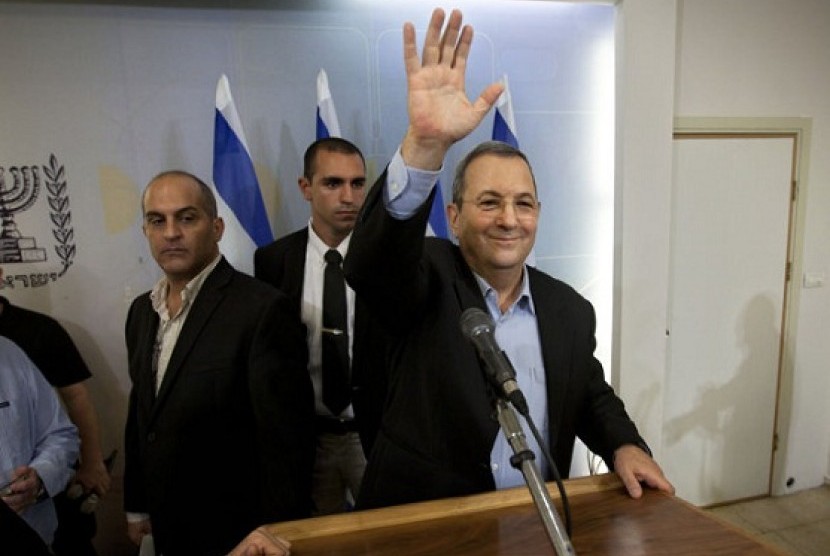REPUBLIKA.CO.ID, JERUSALEM - Israeli Defense Minister Ehud Barak (70 years) on Monday abruptly announced he was quitting politics, injecting new turmoil into the Israeli political system weeks ahead of general elections. In a statement Monday, Netanyahu said he "respected" Barak's decision.
Barak, Israel's most-decorated soldier and one-time prime minister, said he would stay on in his current post until a new government is formed following the Jan. 22 balloting. "I didn't make this decision (to leave politics) without hesitating, but I made it wholeheartedly," he told a hastily arranged news conference, saying he had been wrestling with the decision for weeks.
"I feel I have exhausted my political activity, which had never been an object of desire for me. There are many ways for me to serve the country, not just through politics," he said, adding that his decision was spurred in part by his desire to spend more time with his family.
He evaded repeated questions about whether he might agree to serve as a Cabinet minister in an upcoming government, leaving open the possibility that he might still retain an impact on Israeli politics. While most Cabinet ministers also hold parliamentary seats, they do not have to be elected lawmakers, and such appointments have been made in the past.
"Moderate" among the hawks
His resignation could mean the departure of the most moderating influence on hawkish Prime Minister Benjamin Netanyahu, who holds a wide lead in polls and is expected to easily win re-election. Barak, who heads a small centrist faction in parliament, often served as Netanyahu's unofficial envoy to Washington to smooth over differences with the Obama White House.
His impending departure comes at a key time for Israel, as the nation struggles to find its way in a region where the old order of Arab autocrats has been swept aside by the Arab Spring and the rise of Islamist political parties. Israel also faces a looming decision on whether to attack Iran's nuclear program, which the Jewish state fears is designed to develop atomic weapons — a charge Tehran denies.
Less than a week ago, Barak led an eight-day military offensive against the Hamas militant group that rules the Gaza Strip. The fighting, aimed at ending rocket fire from the Palestinian territory ended in a fragile truce.
Possible replacements include Vice Premier Moshe Yaalon, a former military chief, and Shaul Mofaz, a former military chief and defense minister, who now serves as chairman of the opposition Kadima Party.
Barak was elected prime minister from the centrist Labor Party in 1999 — just four years after retiring from the military. Disappointed with his performance, Israeli voters booted Barak out of the premier's office in record time — less than two years — after his government unraveled with the outbreak of a Palestinian uprising and the collapse of U.S.-sponsored peace talks.
Hard-liner Ariel Sharon trounced him in a 2001 election. Barak left behind a legacy of failed peacemaking with the Palestinians and Syria, despite unprecedented offers of sweeping territorial concessions, and a contentious decision to end Israel's 18-year military occupation of south Lebanon overnight, which created a vacuum quickly filled by the anti-Israel Hezbollah guerrilla group.


